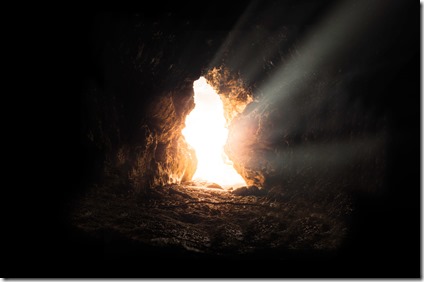“Even if I knew that tomorrow the world would go to pieces, I would still plant my apple tree.”
The above quote is often attributed to Martin Luther, but you’ll be hard-pressed to track it down in any of his writings. But it certainly seems like something Luther would say. His favorite Psalm was Psalm 46 and this is the type of thought which would come from one heavily influenced by that psalm. Regardless of it’s author, is it true in a pandemic? Does that quote hold up now that it feels like our world is going to pieces?
I think it does. (I stick by this, even today). In fact, I believe what “Luther” said is informative for how we respond in the midst of a pandemic. We are called to be faithful to the ordinary means of grace even in extraordinary times.
But I’ll be honest, I’m struggling as a pastor with what this looks like. How do I meaningfully feed the flock when we cannot gather in person? It’s true that we can preach a sermon online but we cannot give a hug. I think both are pastorally necessary. There is a reason why God became flesh. There is a reason why the risen Christ told Thomas to “put out your hand, and place it in my side.”
And so we find ourselves scrambling to try to make things as normal as possible. Easter is special and so we want to do special things to encourage our folks. But with every innovative idea we realize that it’s still not as good as physically gathering. So we ache, still. And we cannot change that reality. Nor should we try. The incarnation happened for a reason.
Yes, I’m deeply saddened that we will be celebrating the resurrection “virtually”. The hardest part about celebrating the resurrection “virtually” is that the resurrection is a very physical event. (John 20:27)
So, pastors, I know we really want to give hope and assure our people that everything is okay. And, it is. The tomb is, empty. And that’s right. Always hope. BUT that doesn’t mean there isn’t deep mourning taking place as well. Christ was physically resurrected and we weren’t meant to celebrate that virtually.
This doesn’t mean we fight and rail against our government for taking our Easter celebrations from us. It means we learn to sit in the ashes of this thing, whilst doggedly clinging to resurrection hope. There is beauty from ashes. And that’s what the resurrection teaches us. This year we feel the ashes more than the beauty. But God is doing something even in this. He is teaching us lament. And that will, in the end, help us celebrate more fully too.
This is where we come back to that apocalyptic apple tree. It takes away our scrambling. It reminds us of the power of ordinary in the midst of extraordinary. The empty tomb was first heralded by ordinary women engaged in an ordinary activity. The power is in the resurrection itself. Though we are filled with grief, we know our church buildings can remain empty because the power isn’t found there. It’s in the empty tomb. And that’s still vacant.
The word still goes forth with power even virtually. When we engage in those ordinary spiritual disciplines we find power even in the midst of chaos. We plant apple trees still, because it’s the ordinary that we are called to do.
And this is comforting because many of us are wearing ourselves out on the front end of this thing as if it’s a sprint and not a marathon. Yes, there are legs of our marathon where we had better run a bit faster—but we never lose sight of the need to pace ourselves. And we must keep in mind that the center of what we do is the proclamation of the risen Christ—in whatever medium we can find. And surviving this isn’t up to our creativity or our innovation or making sure we are producing online content that could shame Hollywood.
Our call is to humbly and graciously and winsomely preach a resurrected Jesus. That’s your apple tree.
But let’s not pretend like this doesn’t hurt.
—
Photo source: here
